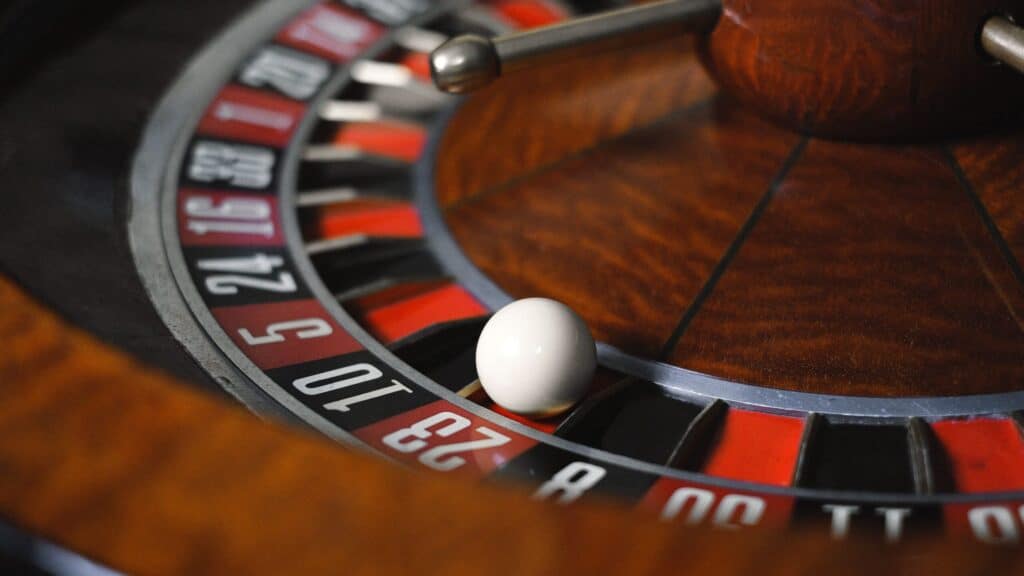Roulette, one of the most popular and exciting casino games, has been captivating players for centuries. While the spinning wheel and the bouncing ball are enough to excite anyone, there is one factor that players often overlook: the impact of the zero. Whether you’re a novice player or an experienced gambler, understanding how the zero affects roulette odds is crucial for making informed decisions and maximizing your chances of success. In this article, we’ll dive deep into the role of the zero in roulette, its effect on the odds, and strategies to mitigate its influence.
The Basics of Roulette
Before we dive into the specifics of how the zero impacts roulette odds, let's quickly review the basic mechanics of the game. Roulette is a game of chance where players place bets on where they believe a ball will land on a spinning wheel. The wheel is divided into numbered pockets, which can be either red or black, and contains a zero (or two zeros, depending on the variant). The outcome of each spin is determined by the random landing of the ball in one of these pockets.
There are two main versions of roulette: European roulette and American roulette. The difference between them lies in the number of zeros on the wheel:
- European Roulette: Features 37 pockets, numbered 0 to 36, with a single zero.
- American Roulette: Features 38 pockets, numbered 0 to 36 and an additional double zero (00).
While both versions share the same fundamental rules, the presence of additional zeros in American roulette significantly affects the odds, which we will explore in detail.
The Role of the Zero in Roulette
At first glance, it might seem like the zero is just another number on the roulette wheel, but it plays a crucial role in determining the odds and payouts of the game. The zero is neither red nor black, nor odd nor even, making it an "outlier" on the wheel. In most roulette games, the zero serves as the house's advantage, meaning that whenever the ball lands on the zero, the house wins, and all non-zero bets are lost.
When players place bets on specific numbers, colors, or odd/even, they are betting against all the numbers on the wheel, including the zero. If the ball lands on a number other than the one chosen by the player, the house wins. However, if the ball lands on the zero, players lose even though it’s not part of the usual color or odd/even betting categories. This is a crucial factor in understanding how the zero impacts the odds of winning.
How the Zero Affects Roulette Odds
The presence of the zero (or double zero in American roulette) changes the odds in favor of the casino. To illustrate this, let's look at some key aspects of how the zero impacts various bets in roulette.
1. The House Edge
One of the most important consequences of the zero is its effect on the house edge. The house edge is the built-in advantage that the casino has over players. In roulette, the house edge varies depending on the version you are playing:
- European Roulette: The house edge is 2.7%. This is because there is one zero on the wheel, giving the casino a slight advantage.
- American Roulette: The house edge is 5.26%. This is due to the additional double zero (00), which increases the number of losing outcomes for players.
How the Zero Contributes to the House Edge: When players make even-money bets (e.g., red/black or odd/even), they are almost betting on a 50/50 outcome. However, the presence of the zero (or double zero) reduces the chances of winning, as the zero is neither red nor black, nor odd nor even. This gives the house an edge by introducing an additional losing outcome that is not accounted for in the player's original calculation.
2. Payouts and Probabilities
The payouts for roulette bets are designed to be less than the true odds of winning, which is another way the casino maintains its edge. The odds of winning on a single number bet are 37 to 1 in European roulette and 38 to 1 in American roulette. However, the payout for a winning single-number bet is 35 to 1, meaning that even if you win, you don’t get paid the full amount that your actual odds would suggest.
For Example: In European roulette, the odds of winning a straight-up bet (a bet on a single number) are 1 in 37, but the payout is 35 to 1. If you win, you get paid 35 times your bet, but you are technically underpaid for the true odds of 36 to 1. This is how the casino compensates for the house edge created by the presence of the zero.
3. Impact on Even-Money Bets
In roulette, even-money bets are those that pay out 1 to 1, such as red/black, odd/even, and high/low. In European roulette, there are 18 red numbers, 18 black numbers, and 1 green zero. This means that the probability of winning an even-money bet is:
European Roulette: 18/37 ≈ 48.65%
On the other hand, in American roulette, there are 18 red numbers, 18 black numbers, and 2 green pockets (0 and 00), so the probability of winning an even-money bet is:
American Roulette: 18/38 ≈ 47.37%
As you can see, the presence of the extra zero (or double zero) in American roulette further lowers the probability of winning even-money bets compared to European roulette.
Strategies for Mitigating the Impact of the Zero
While the zero will always give the house an edge in roulette, there are strategies that players can use to minimize its impact. Below are some tips and strategies for maximizing your chances in the game while accounting for the influence of the zero:
1. Play European Roulette
If you have the choice between European and American roulette, always choose European roulette. The single zero gives you a significantly lower house edge (2.7%) compared to the 5.26% house edge in American roulette. This small difference can make a substantial impact on your long-term profitability, especially if you play regularly.
2. Avoid the Five-Number Bet in American Roulette
One of the worst bets you can make in American roulette is the five-number bet (also known as the "basket bet"). This is a bet on the numbers 0, 00, 1, 2, and 3, and it carries a massive house edge of 7.89%. While this bet may seem tempting because of the potential payout, it significantly increases the odds of losing. If you're playing American roulette, avoid the five-number bet to reduce your overall risk.
3. Use Betting Systems Wisely
There are several betting systems that players use to manage their bankroll and mitigate the impact of the house edge. Popular systems include the Martingale, Labouchère, and Fibonacci systems. These systems don’t change the odds of the game, but they can help you manage your bets and control your losses. Remember, no system can overcome the house edge, but they can help you make more disciplined betting choices.
4. Set a Budget and Stick to It
One of the most important strategies for playing roulette, or any casino game, is to set a budget before you start playing. Since the house always has an edge, it's essential to manage your bankroll effectively. Set limits for your losses and winnings, and stick to them. This will help you maintain control over your game and prevent you from chasing losses due to the unpredictable nature of the game.
Conclusion: Embrace the Zero and Play Smart
The zero (or double zero) is an integral part of the roulette game, and its impact on odds is unavoidable. Whether you’re playing European or American roulette, understanding how the zero affects the house edge, payouts, and probabilities is essential for making informed decisions. While you can’t eliminate the house edge, you can mitigate its impact by choosing European roulette, avoiding poor bets, and implementing smart betting strategies. By playing wisely, you can enjoy the thrill of roulette while maximizing your chances of success.



